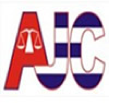The Conference of the Communist Party of Cuba is over. From it, what we have left is a single phrase: “no illusions.”
This is equivalent to saying — in good Cuban — that things will continue as they are, we should not expect changes and future rosy prospects and must resign ourselves to our fate for any number of years.
It also means that anyone who thinks differently, who dares to protest, to questioning the higher ups about their performance, or to engage in a hunger strike will be, unquestionably, “an employee of imperialism, a traitor to his country, a scum criminal who already had problems”; finally, someone totally disqualified to question anything, even at the cost of his life.
A sad fate that we live as a country.
But I think that the constraints are limited and what seems to be coming in Cuba, though it doesn’t appear so, is that things are changing and one of those changes is what happens with information.
Information used to be exclusive to the State until a few years ago. Now the technology (although we are still far from the INTERNET), along with the bravery of a group of independent journalists (despite the Black Spring), have broken the monopoly and the public finds out things they previously would not have known.
Of the Ladies in White there is no need even to speak: its very existence and the release of the 75 political prisoners — first and foremost, the credit for this is theirs — speak for themselves.
In this context, we will continue doing what we believe is our duty as Cuban lawyers, namely: Let our countrymen know their rights under the law of the country and ways to exercise them accordingly.
Let them know the Covenants on Civil and Political Rights and on Economic, Social and Cultural Rights signed by the Cuban government for the people of Cuba, but never published for the information of citizens.
Continue to help Cubans who can not afford it to pay for services from the Law Collective, the transport of these firms’ lawyers to prisons or other places, or what is often asked for “under the table.” and any other advice requested from civil society.
The eternal heroes of this nation, who unfortunately are no longer with us, long ago gave us the rights “we don’t have to beg for,” many of which are inalienable because they derive from our essential human condition.
And this, which we note here, is in that category, because it is a question of the Right for Cubans to know.
Translator’s note: This is the first translated post from the Cuban Law Association blog — an outstanding blog about the law and human rights in Cuba. The original blog in Spanish is here.
13 February 2012

